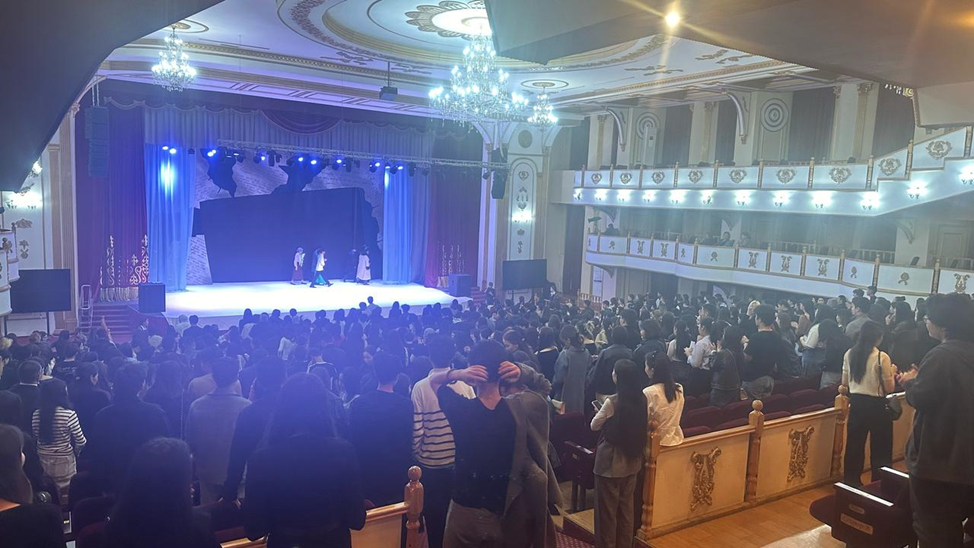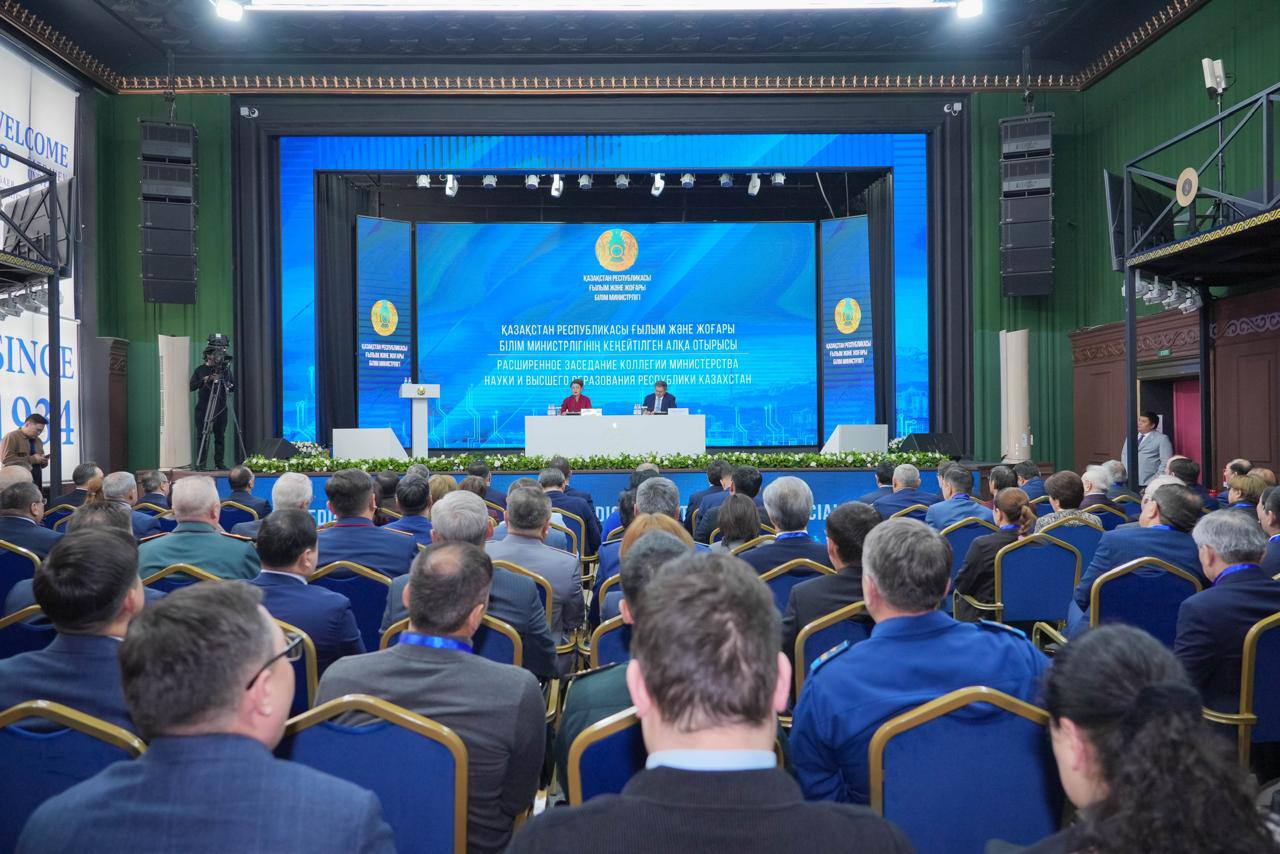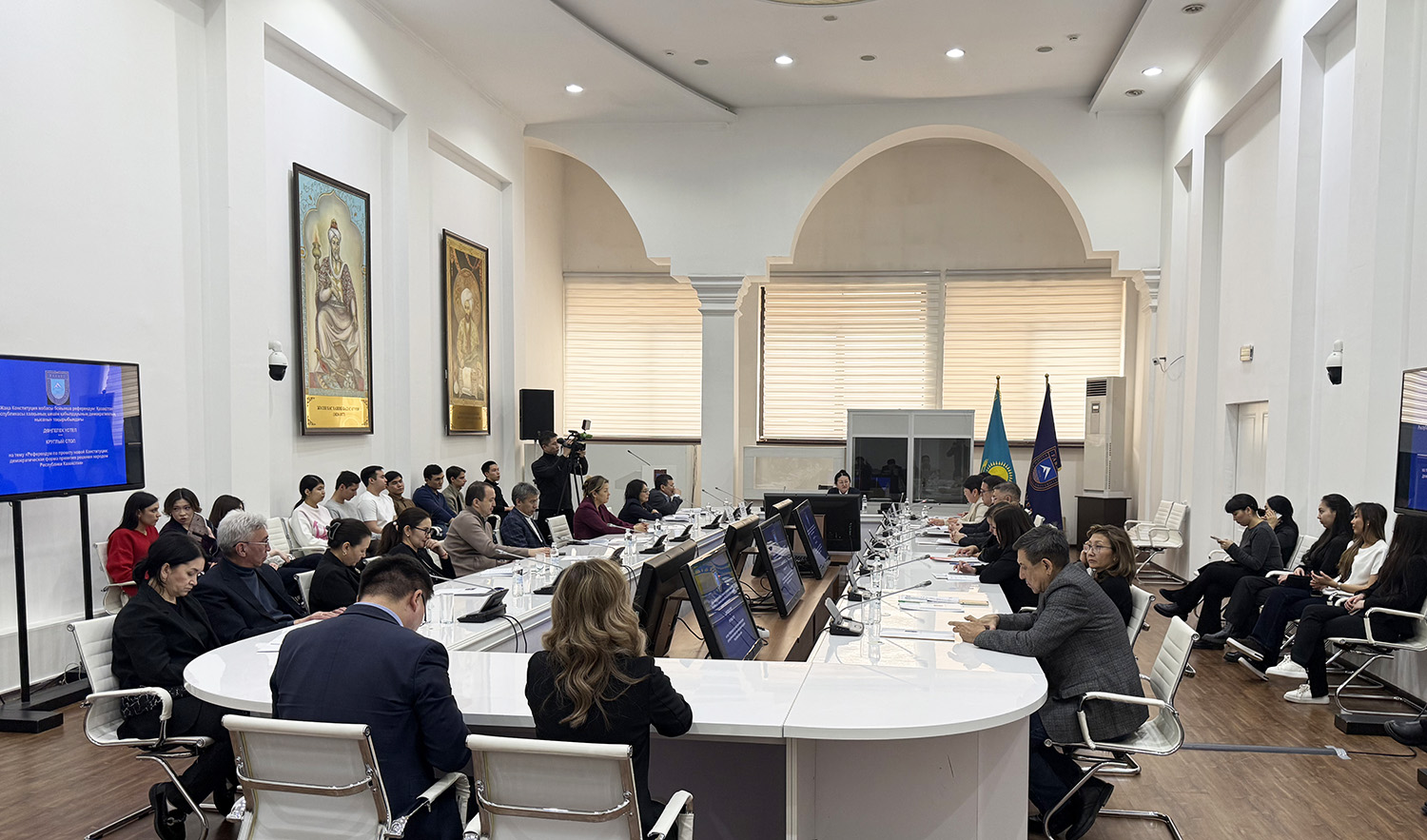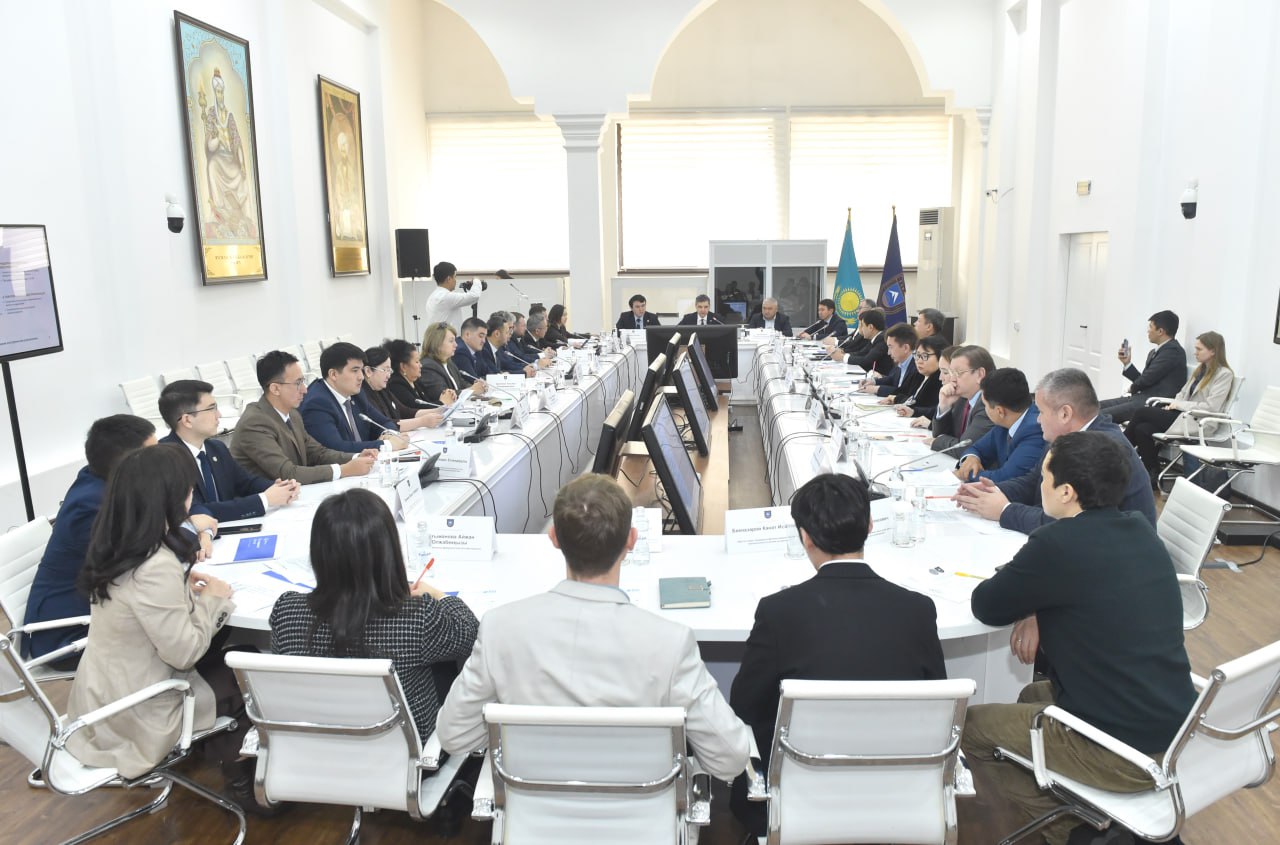Staging of Dulat Isabekov’s Play "A Century of Love"
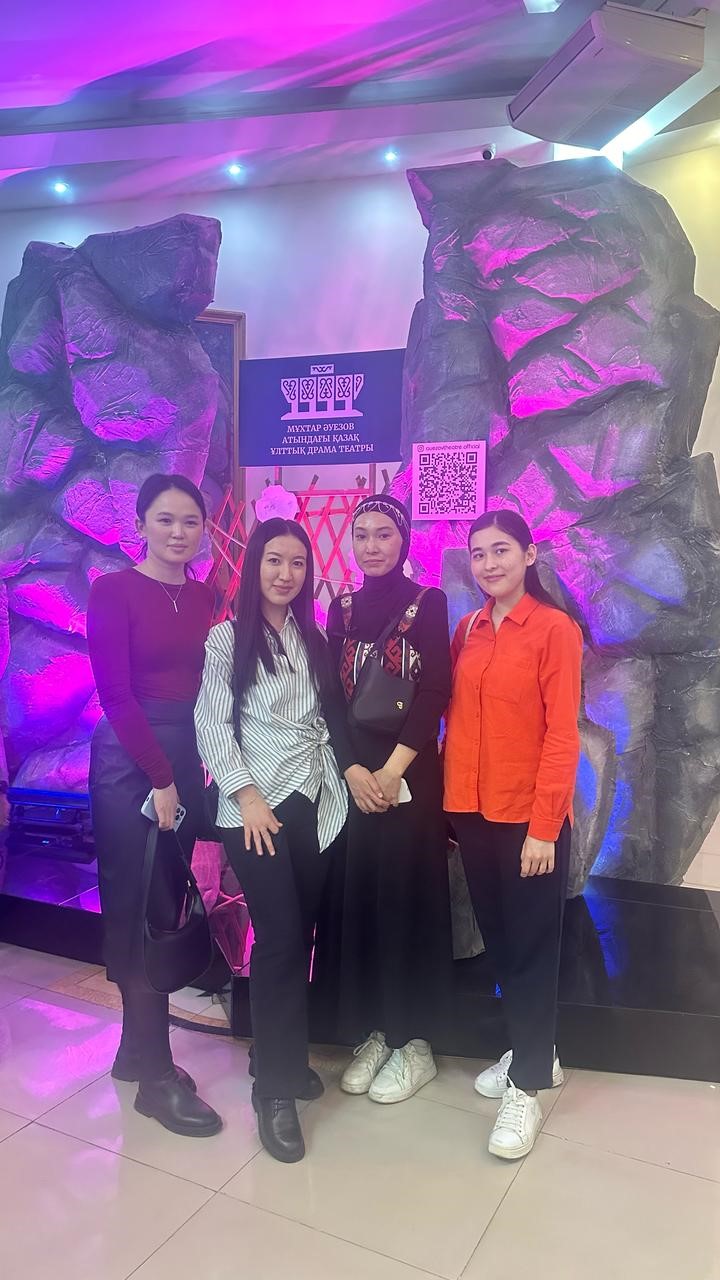
On March 19, 2025, a visit to the play "A Century-Long Love" by Dulat Isabekov was organized at the Concordia Student Theater as part of the curator's hour. The event was attended by first-year master's students from the Department of Molecular Biology and Genetics: Sydykbek Zhazira, Nurzhankyzy Zauzat, Zhaparghali Symbat, and Turar Tolganay. The responsible persons were first-year doctoral students in the Genetics program, Melisbek Aibarys and Abaildayev Arman.
The purpose of the event was to expand students' knowledge about the life and work of the prominent Kazakh literary figure Magzhan Zhumabaev, develop historical awareness, foster interest in theater arts, and highlight the difficult fate of his devoted wife Zylikha and her unwavering love for him. The play portrays the fate of the great Kazakh poet Magzhan Zhumabaev and his wife Zylikha. The story unfolds through Zylikha’s memories, illustrating the poet’s hardships, the devastating effects of political repression, and their profound love for each other. The themes of freedom and patriotism in Magzhan’s poetry were particularly emphasized in the performance. Zylikha is depicted not only as the poet’s wife but also as a strong woman who played a crucial role in preserving his literary legacy. She carefully kept her husband's poems, considering it her duty to pass them on to future generations. Her devotion, endurance, and love were the central themes of the play.
During the performance, the audience was deeply moved by the stage production, the actors' heartfelt performances, and the inclusion of excerpts from Magzhan’s poetry. The musical accompaniment and lighting effects enhanced the atmosphere, immersing viewers in the spirit of that era. Students were particularly impressed by the play, as it conveyed not only historical reality but also the eternal values of love and devotion. Magzhan’s resilient spirit, his longing for freedom and patriotism, as well as Zylikha’s boundless loyalty, deeply resonated with the audience. For some students, the play was an opportunity to better understand historical consciousness and gain deeper insight into the struggles of the Kazakh intelligentsia. During the post-performance discussion, students emphasized the significance of Zylikha's character, recognizing her as a symbol of not only a woman’s love but also spiritual resilience. The actors’ performances and the effectiveness of the staging were also highly praised. Many students expressed a growing interest in Magzhan’s works and a desire to explore his poetry further.
This event contributed to the spiritual development of students and enhanced their respect for historical figures. Through theater, their interest in literature was awakened, and their patriotic feelings were strengthened. We believe that such cultural activities should continue to be organized in the future. Therefore, we propose attending other historical and literary performances, conducting literary analysis discussions with students, arranging meetings with theater representatives, and participating in creative evenings.
